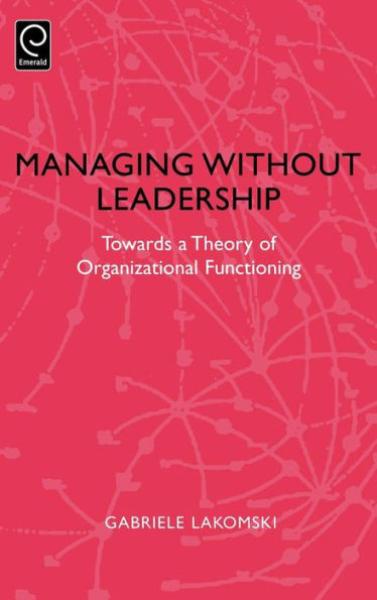Description
A critical examination of leadership theories past and present, Managing without Leadership argues that leadership as traditionally understood does not explain organizational functioning. Bounded by empiricist assumptions and methodology, and including a narrow theory of mind as symbol processor, leadership theories are unable to support their claims about leaders and their actions. Drawing on coherentist epistemology, connectionism, and the theory of self-organizing dynamic systems, a naturalistic account of organizational functioning and organization design is explored that includes leaders as non-privileged agents in the cognitive fabric of organizational life.
Argues that leadership as traditionally understood does not explain organizational functioning. Drawing on coherentist epistemology, connectionism, and the theory of self-organizing dynamic systems, a naturalistic account of organizational functioning is explored that includes leaders as non-privileged agents in the fabric of organizational life.
"Managing Without Leadership challenges orthodox thinking about leadership provoking scholars in the field to re-examine the epistemological assumptions that underpin their work." - Professor James Spillane, Northwestern University, US
Argues that leadership as traditionally understood does not explain organizational functioning. Drawing on coherentist epistemology, connectionism, and the theory of self-organizing dynamic systems, a naturalistic account of organizational functioning is explored that includes leaders as non-privileged agents in the fabric of organizational life.
"Managing Without Leadership challenges orthodox thinking about leadership provoking scholars in the field to re-examine the epistemological assumptions that underpin their work." - Professor James Spillane, Northwestern University, US
Last updated on
Product Details
- Emerald Group Publishing Brand
- Dec 15, 2004 Pub Date:
- 0080433529 ISBN-10:
- 9780080433523 ISBN-13:
- 168 Pages
- 9.74 in * 6.6 in * 0.49 in Dimensions:
- 1 lb Weight:




